The role of microbiota-gut-brain axis in neurodegenerative diseases: biochemical and therapeutic aspects
The enteric nervous system (ENS) is considered by some authors as the second human brain, given its fundamental role in the regulation process of the central nervous system (CNS). Recent data from s
[...] Read more.
The enteric nervous system (ENS) is considered by some authors as the second human brain, given its fundamental role in the regulation process of the central nervous system (CNS). Recent data from scientific literature have shown the existence of close bidirectional communication between the gut microbiota and the CNS, influencing physiological and biochemical changes related to cognition, emotion, behavior, anxiety, depressive symptoms, and stress. Furthermore, the existence of mediators in the connection between intestinal microorganisms and the CNS is evident, which includes neural networks, signaling, immune, and endocrine responses. However, the mechanisms underlying the effects of gut microbiota on brain processes still need to be determined. Therefore, understanding the relationship between the gut and neurodegenerative diseases (NDs) is essential for developing effective prophylactic alternatives and disease-modifying drugs that can prevent or slow the progression of such diseases. Herein, this short review aimed to present the most recent data from the scientific literature associated with the physiological, biochemical, and cellular aspects involved in the interrelationship between the gut-brain axis and NDs, discussing the role of the intestinal microbiota, and its relationship with CNS disorders.
Januário T. Ernesto ... Cláudio Viegas Jr.
View:2539
Download:73
Times Cited: 0
The enteric nervous system (ENS) is considered by some authors as the second human brain, given its fundamental role in the regulation process of the central nervous system (CNS). Recent data from scientific literature have shown the existence of close bidirectional communication between the gut microbiota and the CNS, influencing physiological and biochemical changes related to cognition, emotion, behavior, anxiety, depressive symptoms, and stress. Furthermore, the existence of mediators in the connection between intestinal microorganisms and the CNS is evident, which includes neural networks, signaling, immune, and endocrine responses. However, the mechanisms underlying the effects of gut microbiota on brain processes still need to be determined. Therefore, understanding the relationship between the gut and neurodegenerative diseases (NDs) is essential for developing effective prophylactic alternatives and disease-modifying drugs that can prevent or slow the progression of such diseases. Herein, this short review aimed to present the most recent data from the scientific literature associated with the physiological, biochemical, and cellular aspects involved in the interrelationship between the gut-brain axis and NDs, discussing the role of the intestinal microbiota, and its relationship with CNS disorders.
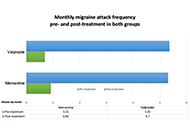 Efficacy of memantine compared with sodium valproate as prophylactic treatment for migraine: a controlled randomized pilot studyOpen AccessOriginal ArticleAim: To compare the efficacy of memantine with that of valproate as a prophylactic treatment for episodic migraine within three months. The efficacy, safety, and response rate were evaluated. [...] Read more.Damaris Vazquez-Guevara ... Ildefonso Rodriguez-LeyvaPublished: April 28, 2023 Explor Neuroprot Ther. 2023;3:131–138
Efficacy of memantine compared with sodium valproate as prophylactic treatment for migraine: a controlled randomized pilot studyOpen AccessOriginal ArticleAim: To compare the efficacy of memantine with that of valproate as a prophylactic treatment for episodic migraine within three months. The efficacy, safety, and response rate were evaluated. [...] Read more.Damaris Vazquez-Guevara ... Ildefonso Rodriguez-LeyvaPublished: April 28, 2023 Explor Neuroprot Ther. 2023;3:131–138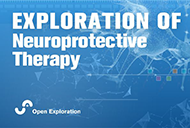 Reversible cerebral vasoconstriction syndrome: a clinical and therapeutic challengeOpen AccessReviewReversible cerebral vasoconstriction syndrome (RCVS) is characterized by thunderclap headache and intracranial segmental vasoconstriction with or without signs of neurological deficit with a variabl [...] Read more.Andrés Ricaurte-Fajardo ... Nathalia Melo GonzalezPublished: April 28, 2023 Explor Neuroprot Ther. 2023;3:120–130
Reversible cerebral vasoconstriction syndrome: a clinical and therapeutic challengeOpen AccessReviewReversible cerebral vasoconstriction syndrome (RCVS) is characterized by thunderclap headache and intracranial segmental vasoconstriction with or without signs of neurological deficit with a variabl [...] Read more.Andrés Ricaurte-Fajardo ... Nathalia Melo GonzalezPublished: April 28, 2023 Explor Neuroprot Ther. 2023;3:120–130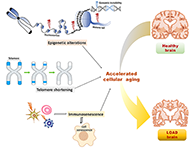 Epigenetic and non-epigenetic mechanisms in the accelerated cellular aging in late-onset Alzheimer’s diseaseOpen AccessReviewLate-onset Alzheimer's disease (LOAD) is the most common form of Alzheimer's disease (AD) and its risk increases exponentially with aging. The incidence of LOAD is reported to [...] Read more.Kajal Rawat, Prathiba GarlapallyPublished: April 28, 2023 Explor Neuroprot Ther. 2023;3:105–119
Epigenetic and non-epigenetic mechanisms in the accelerated cellular aging in late-onset Alzheimer’s diseaseOpen AccessReviewLate-onset Alzheimer's disease (LOAD) is the most common form of Alzheimer's disease (AD) and its risk increases exponentially with aging. The incidence of LOAD is reported to [...] Read more.Kajal Rawat, Prathiba GarlapallyPublished: April 28, 2023 Explor Neuroprot Ther. 2023;3:105–119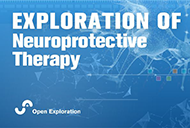 Innate and adaptive glial cell responses in Alzheimer’s diseaseOpen AccessReviewAlzheimer’s disease (AD), which affects around twenty-seven million people globally, is an aging-related neurodegenerative condition characterized by the extracellular deposition of misfolded amyl [...] Read more.Ankita Singh, Tiratha Raj SinghPublished: April 03, 2023 Explor Neuroprot Ther. 2023;3:90–104
Innate and adaptive glial cell responses in Alzheimer’s diseaseOpen AccessReviewAlzheimer’s disease (AD), which affects around twenty-seven million people globally, is an aging-related neurodegenerative condition characterized by the extracellular deposition of misfolded amyl [...] Read more.Ankita Singh, Tiratha Raj SinghPublished: April 03, 2023 Explor Neuroprot Ther. 2023;3:90–104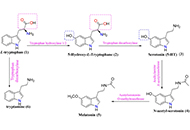 The role of microbiota-gut-brain axis in neurodegenerative diseases: biochemical and therapeutic aspectsOpen AccessReviewThe enteric nervous system (ENS) is considered by some authors as the second human brain, given its fundamental role in the regulation process of the central nervous system (CNS). Recent data from s [...] Read more.Januário T. Ernesto ... Cláudio Viegas Jr.Published: March 29, 2023 Explor Neuroprot Ther. 2023;3:71–89
The role of microbiota-gut-brain axis in neurodegenerative diseases: biochemical and therapeutic aspectsOpen AccessReviewThe enteric nervous system (ENS) is considered by some authors as the second human brain, given its fundamental role in the regulation process of the central nervous system (CNS). Recent data from s [...] Read more.Januário T. Ernesto ... Cláudio Viegas Jr.Published: March 29, 2023 Explor Neuroprot Ther. 2023;3:71–89